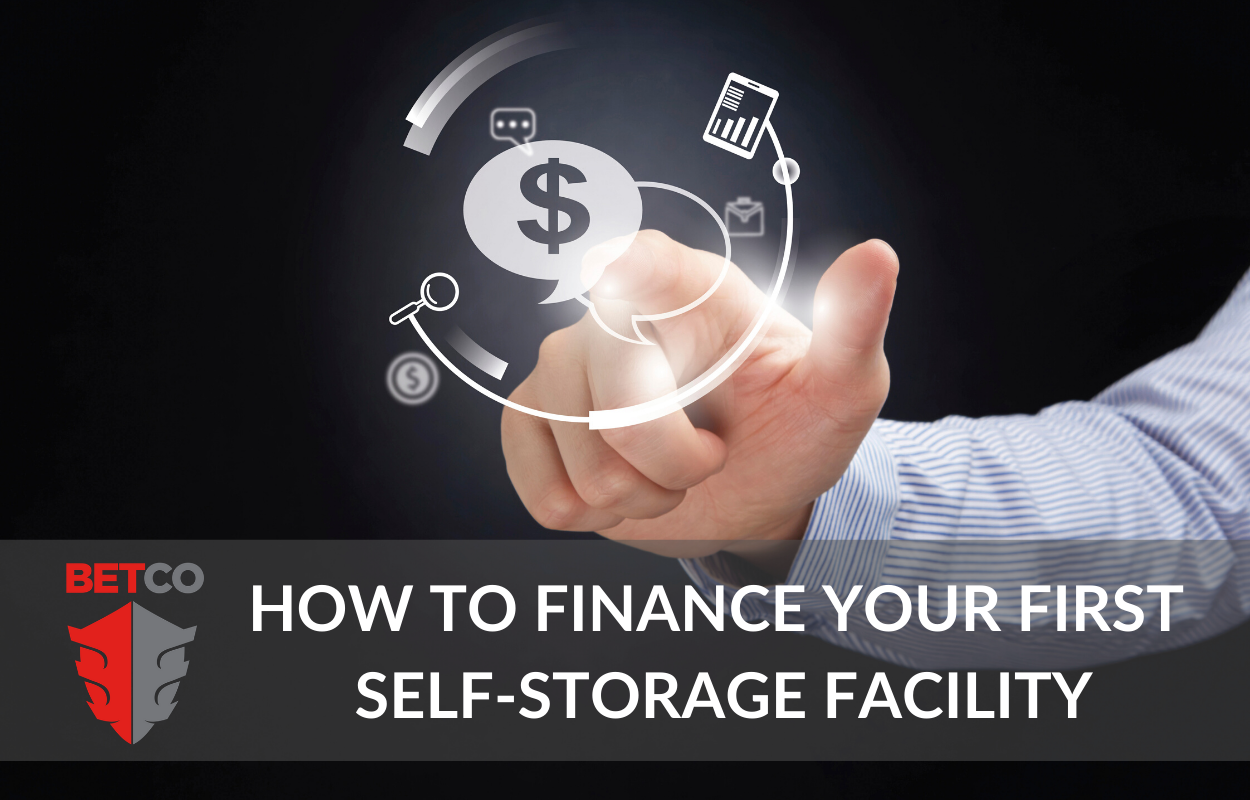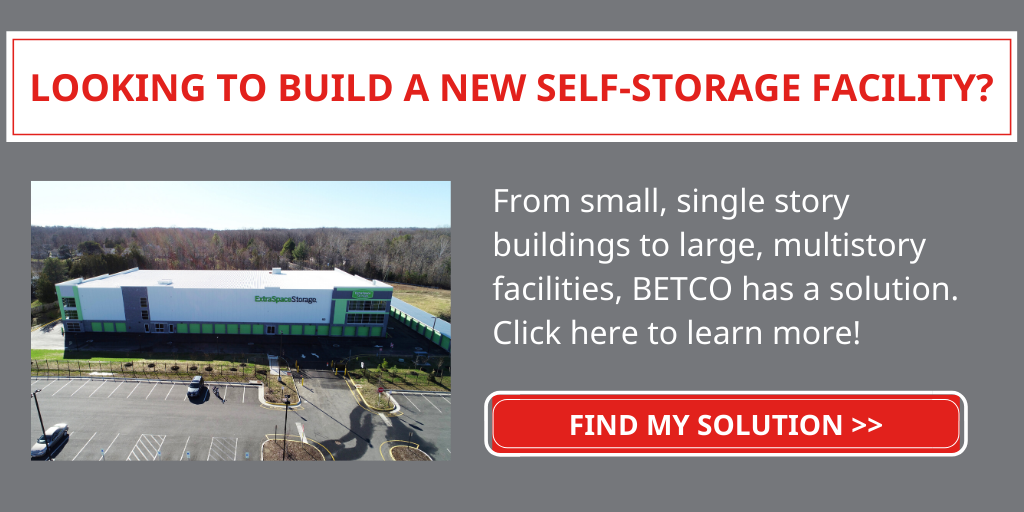A business venture is only an idea until you are able to put money behind it. To assist with the investment in your new self storage construction project, we've outlined the financing options available, how these loans can help your bottom line, the differences between each, the criteria lenders consider, and what you should look for in a lender.
The Benefits of a Loan
There are many benefits to obtaining business loans. By acquiring a loan for your business, you will be monetarily prepared for the start of your new venture. One benefit available to borrowers is that the interest you pay on debt financing is tax deductible as a business expense. You also get to decide what percentage of the project cost you want to finance. Terry Campbell, Executive VP of Small Business Lending at Live Oak Bank said it best, “Most all facilities are at least partially financed and most people are not going to fund the entire project out of pocket. I know billionaires that finance their projects”. Another benefit is that the lender has no say in your business and once the loan is repaid, that relationship is dissolved, as it has no ownership. All are great reasons to consider applying for a business loan.
How do lenders choose you?
Knowing more about the benefits of acquiring a loan, now it’s important to cover what lenders look for in a borrower. Experience in the self-storage industry is a great indicator of a low-risk investment and ideally, a borrower would be able to show that their background would support their business decisions. In order to apply for a loan, you would be required to provide the following:
- Statement summarizing the purpose of the loan
- Balance sheet prepared within the past 90 days
- Current profit-and-loss statement
- Tax returns from the past three years (business and personal)
- Personal financial statement
- Record of current tenants and management reports for an existing self-storage business
- Feasibility study (if the loan is for a new construction project)
- Business plan and resume
When making their assessment, they usually refer to the traits that are widely known as the five Cs: credit, collateral, character, cash flow and commitment. Be prepared with this knowledge when you arrive to your meeting and let the lending institution see what a great investment your business is.
How should you choose a lender?
When it comes to self storage financing, just as the lender gets to qualify you - you also get to choose your lender. Not all lenders are the same and while some lenders can appear to have the same low rates, the terms and conditions of each agreement can vary. Companies like Live Oak Bank, Bank Solutions Group (BSG), Marcus & Millichap, Jernigan Capital and Newmark Knight Frank (NFK) focus specifically on providing loans within the self-storage industry and that background allows for a smoother process overall. Some of which provide SBA loans, conventional loans, or a mix of both.

There are a few different loan options available to those that are approved. For our purposes, we will cover the differences between two types of small business loans and conventional loans. The loan you choose will depend on the specific needs of your business.
- SBA 7(a) Loans:
The Small Business Administration (SBA) is a government-backed loan and that allows a borrower to need less equity to get approved for a loan. As a result, this is a good loan option for new businesses and also for the acquisition or expansion of an established one. The loan term is between 10-25 years and less of a down payment is required compared to conventional loans.
- SBA 504 Loans:
These loans are meant for small businesses looking to finance commercial real estate or large equipment to use in their operations. Additionally, a 504 loan can be used to finance land acquisition, ground-up construction or improvements/expansion to an existing building. Depending on the use of the loan, there are options for either a 10, 20, or 25 year term. Down Payments are similar to SBA 7(a) Loans.
- Conventional Loans:
Loans of this type don’t involve the federal government, which explains why the bank has more leeway with terms and down payments, and are better suited for established companies that can show prior growth. Newer businesses will find that this loan is likely not a match.
Now what?
Now that you have the background information on what it takes to finance your self-storage facility, you can feel confident in reaching out to lenders and getting quotes on your new business venture. Once you have chosen your lender and sent them the information they need to approve your loan (listed in this blog), a mutual agreement can be reached and your loan can be approved and closed. From there, you will abide by the terms agreed upon and pay on your loan overtime.
Building a new self-storage facility? Click here or the button below to find the best solution for your next project!



